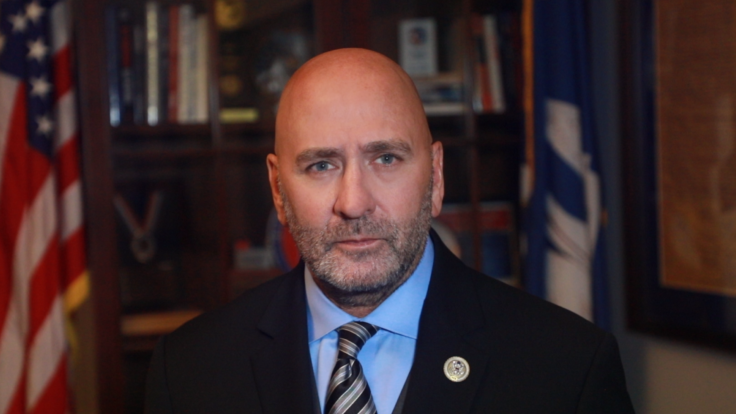
Clay Higgins, the Republican congressman from Louisiana, has emerged as the sole member of the United States House of Representatives to vote against the Epstein Files Transparency Act.
The bill, which passed this week in a 427 to 1 vote, seeks to compel the Department of Justice to release long-sealed investigative records linked to Jeffrey Epstein.
Higgins said his opposition was rooted in concerns over criminal justice procedure, setting him apart from every other lawmaker who supported the measure.
Who Is Clay Higgins?
Clay Higgins has represented Louisiana's 3rd Congressional District since 2017 and is known for his strong alignment with conservative causes.
Prior to entering Congress, he served in law enforcement, including roles within local police departments and a sheriff's office.
His background in policing has shaped much of his public persona, positioning him as an advocate of strict criminal justice policies and a vocal supporter of border security and traditional law enforcement procedures.
His district is considered firmly Republican, and Higgins has built a brand around being outspoken on issues of national security, immigration, and constitutional rights.
His legislative record and public statements have often placed him among the more hardline voices within the House Republican Conference.
Details of the Epstein Files Transparency Act
The Epstein Files Transparency Act seeks to release federal records related to Jeffrey Epstein, the financier whose criminal network and subsequent death in custody have prompted years of scrutiny.
The bill received rare bipartisan backing, bringing together lawmakers from across the political spectrum who argued that public transparency was necessary for survivors, families and the broader public.
With a vote of 427 in favour and only one against, the measure was among the most unified legislative actions seen in the current session of Congress.
The bill directs the Justice Department to disclose files while allowing specific redactions in cases where the release may risk compromising active investigations or the safety of individuals who were not charged with wrongdoing.
Why Clay Higgins Voted No
Higgins defended his decision by arguing that the bill undermines long-established criminal justice protections.
He said the measure 'abandons 250 years of criminal justice procedure' and insisted that releasing raw investigative files could 'result in innocent people being hurt', as reported by the BBC.
He has also expressed concern about revealing names of individuals who were mentioned in investigations but were not accused of any crimes.
Higgins argued that the proposal could expose civilians, witnesses and individuals irrelevant to the criminal aspects of the case.
He added that releasing materials into what he described as an intense media environment may lead to misinterpretation of sensitive documents. His position has focused on safeguarding procedural integrity rather than disputing the public interest in the Epstein case.
Public and Political Response
Victims' advocacy groups have continued to push for maximum transparency, stating that disclosure of the files is critical for accountability.
Many lawmakers said their support for the bill was grounded in providing long-awaited answers for survivors and strengthening trust in the justice system.
Social media reaction intensified after the vote, with users highlighting Higgins' status as the only dissenting lawmaker.
Some referenced his broader political track record, while others examined the arguments he offered regarding due process and the protection of private individuals.
What Comes Next for the Bill
The bill now moves to the Senate, where it is expected to receive further consideration. If it secures passage, the Department of Justice will begin preparing the release of documents, applying limited redactions where necessary.
The process is likely to draw continued public attention as families, journalists and legal experts analyse the implications of disclosing records connected to one of the most scrutinised criminal cases in recent years.







